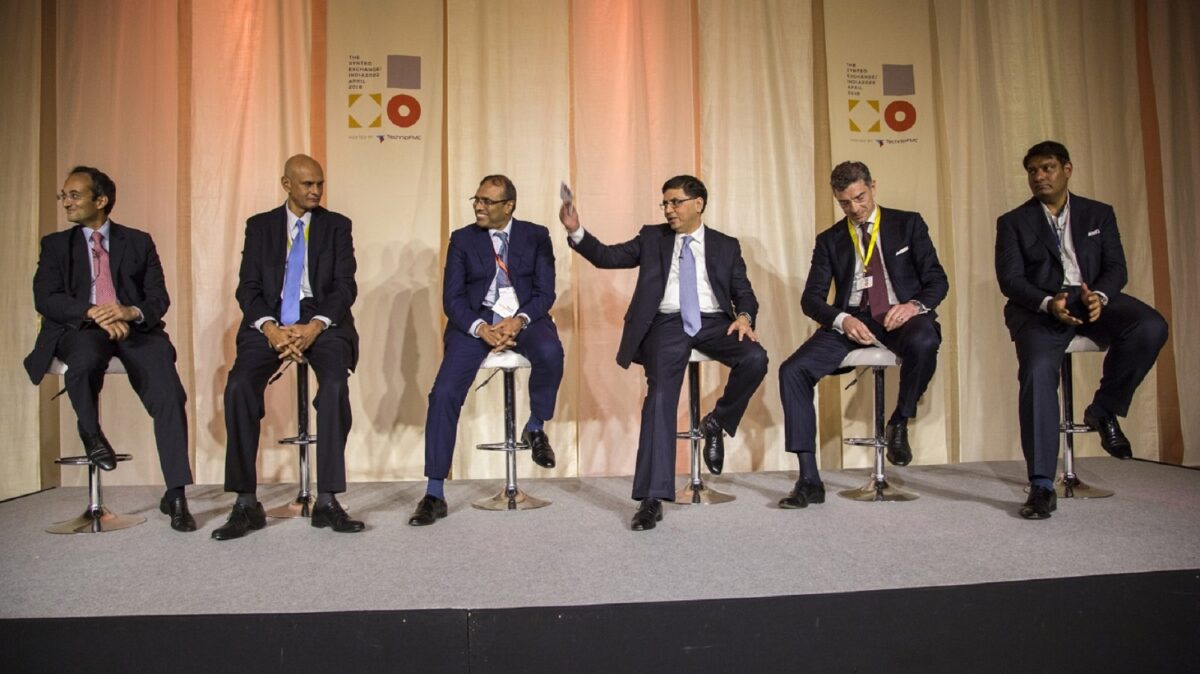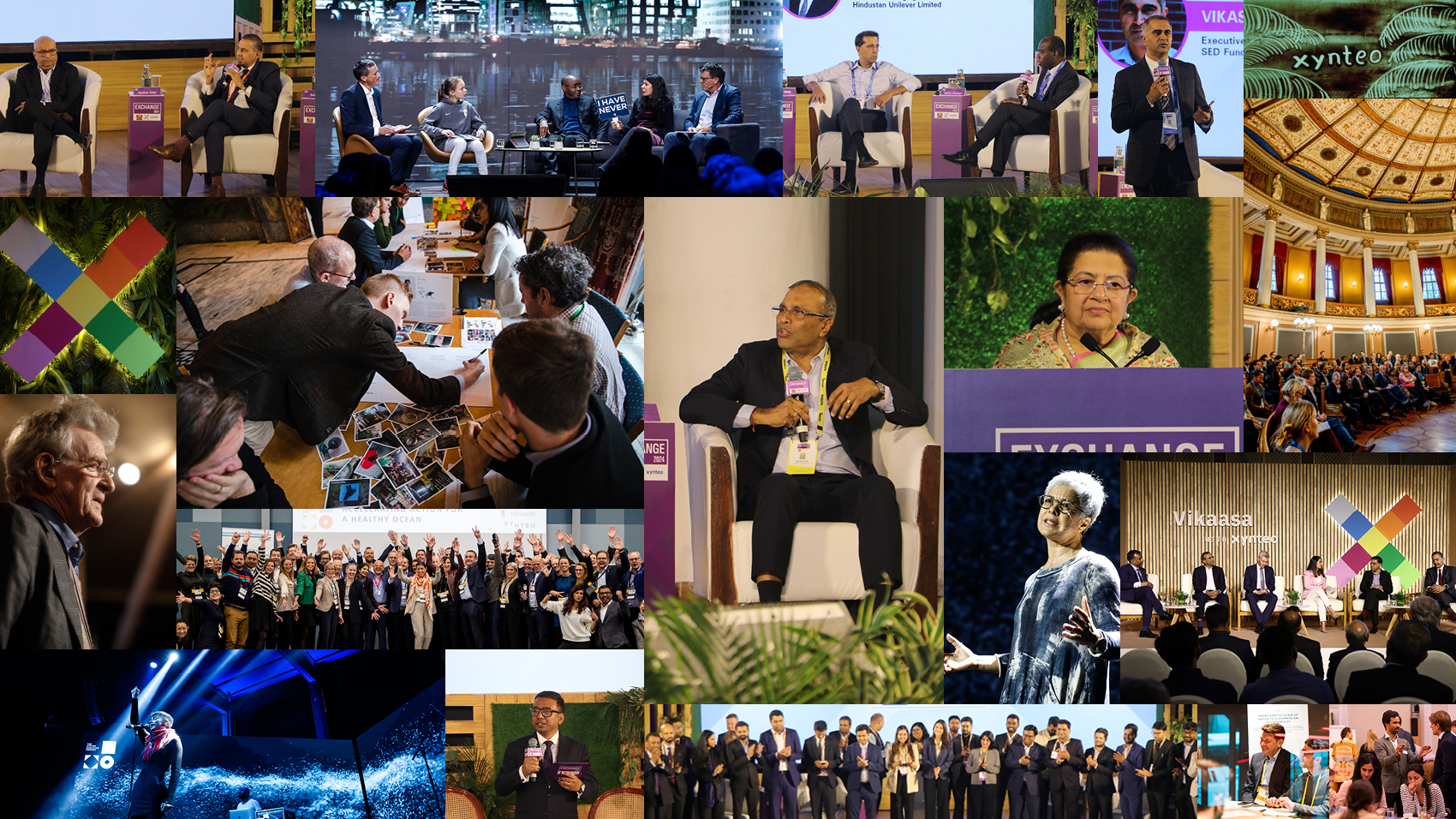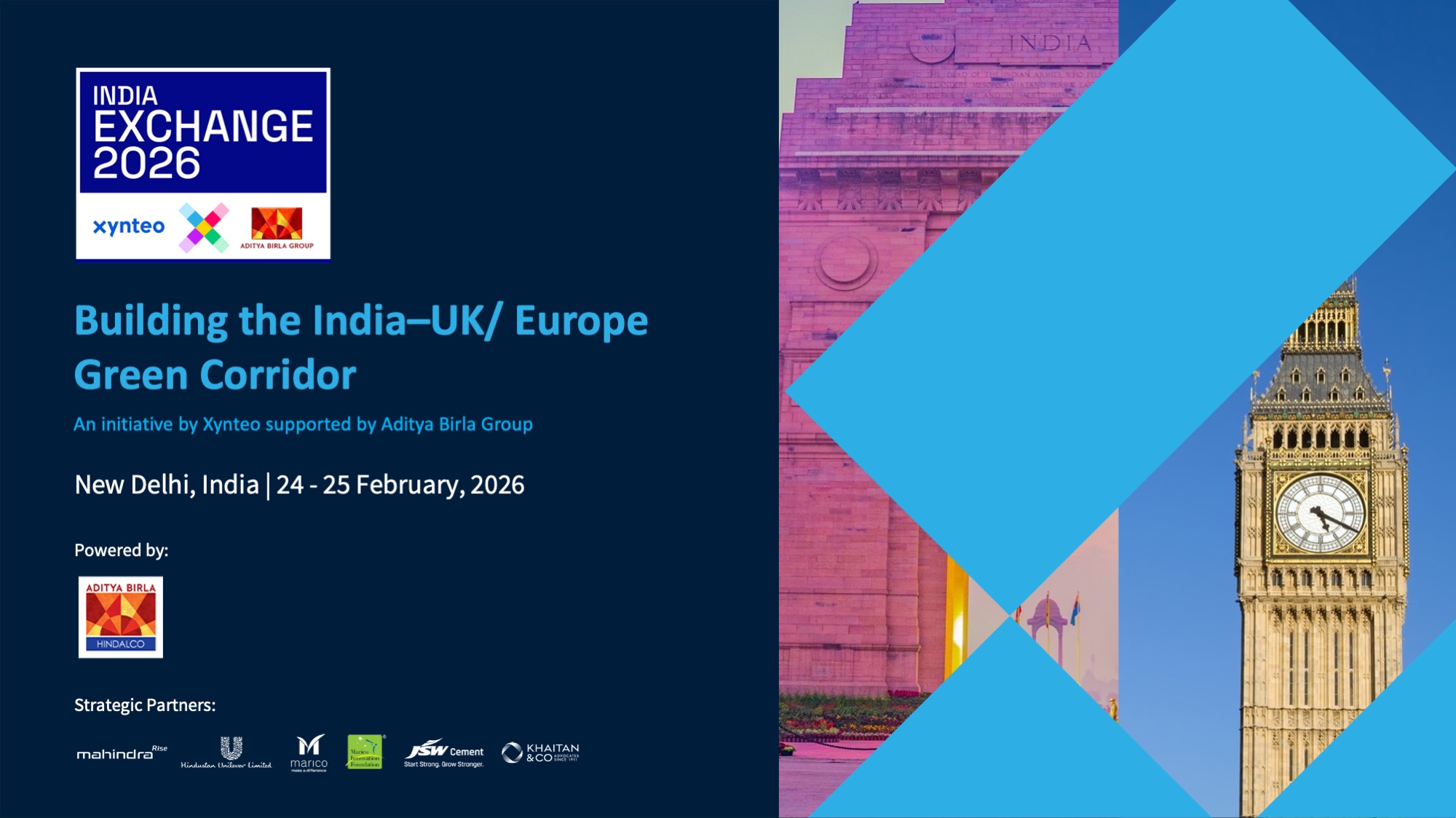On 1 April, the Xynteo Starter, a pre-event celebration to Xynteo Exchange/India2022 (now Vikaasa) brought together an impressive line-up of speakers and guests at the National Centre for Performing Arts (NCPA) in Mumbai.
With an opening performance by UnErase Poetry, spoken word artists who painted a vivid picture of the negative consequences of overlooking social and environmental responsibility, challenged the guests to think deeper about the burden of responsibility and the legacy for the next generation.
Mrs Rajashree Birla, Chair of India2022 Advisory Board, and Chairperson, Aditya Birla Centre for Community Initiatives and Rural Development, opened the event. Mrs Birla spoke about the progress that the India2022 coalition has made and stated that “this is an incredibly important time in India for growth and those who care about growth.”
The Xynteo Starter gathered global and Indian leaders within business, policy, NGOs and academia, and was an evening of thoughtful reflections and inspiring discussions. The event kickstarted the Xynteo Exchange/India2022, which is a platform that brings leaders, capital, talent, and ideas together to accelerate commercial projects that can advance a new growth model for India.
India is ready to transform
In his keynote, Rajiv Kumar, Vice Chairman of NITI Aayog (National Institution for Transforming India), reflected on India’s transformation. He discussed NITI Aayog’s Strategy for New India @ 75, which seeks to build a new India by 2022 by bringing together innovation, technology, enterprise, and efficient management at the core of policy. “India is now at the cusp of a major transformation and is now ready to take the leap towards sustainable growth and transformation.”
“A new India is rising in 2022. Since liberalisation, we have set the foundation for economic and social changes to take place. Innovation ecosystems are being implemented in schools. Suspicion is being dissipated and trust is being created. Government and private sectors must work together,” he added. Kumar also highlighted the areas of water, transport, environment and healthcare to be impacted by innovative thinking. “Behavioural and mindset changes do not happen simply by policy implementations. The change has to be done on the ground.”
The power of narratives in influencing change
CVL Srinivas, Country Manager, WPP India shared Kumar’s sentiment in the first panel discussion, on the power of narratives in influencing change. Srinivas expressed his optimism that India’s new narrative will be built on creativity and its young entrepreneurs leading social change.
Moderated by Rama Bijapurkar, Chairperson, People Research on India’s Consumer Economy, this session also saw other speakers share their hopes for new narratives and agreed that there were some narratives “on their way out” – such as undermining women’s role in leadership.
Devdutt Pattanaik, mythologist and author, spoke about the how the narrative of India is evolving and it is many times under-appreciated because the scale is not always visible.
“Narratives are ever-changing. Change is happening at so many levels in India but it’s not a homogenous shift from A to B, but many simultaneous changes happening at the same time. That’s why we can’t always see the change. We are transitioning from a world that is equal and homogenous and are now talking about diversity,” Pattanaik added.
Samir Patil, Founder and CEO, Scroll.in, continued that in these multiple-narratives scenario, “there are too many perspectives and not enough explanation or articulation of it.”
In exploring the role businesses can play in narrative-building, Stein Olav Henrichsen, Director of the Munch Museum in Oslo mentioned the multiplicity of narratives — that they exist on many levels, such as the local and the global.
“Speaking of a global level, I think that an important narrative is around environment and the future of our planet. We need to talk about what unites us, not what divides us,” he added.
To do this, we need to question the systems, such as education, that promotes beliefs and learnings at an early age. “The role of education is to create and recreate narratives. What are we doing in the system? We need to produce graduates who can work in unseen futures; we just don’t teach by rote learning,” said Dr Sharon Pickering, Dean of Arts, Monash University.
Building winning teams
In the final discussion of the evening, Australian international cricketer and commentator, Brett Lee spoke about how high-performing teams are fundamental to accelerate change. Drawing on his experience from the Cricket World Cup, he shared his belief that “to successfully create change, you must have a plan and a direction. Sport and business are very similar — you can challenge your boss and your captain. This allowed us to change the culture in our team. It then became about a vision – not just to win, but to win properly.”
Crispin Simon, British Deputy High Commissioner of Mumbai highlighted the importance of values and having a common approach towards teamwork. A practice of this approach is evident in NK Chaudhary’s work with Jaipur Rugs.
Reflecting on the role that human relationships play in business, he said, “Business is all about the human connection. We started an engagement programme with weavers of our company, to know their families and understand their leadership and capability development needs. This was very useful.”
Kate Roberts, Founder, Maverick Collective (PSI) concluded the session in saying that , “if you convene bold, smart and powerful people you can tackle any crisis. We must believe in the power of women. If you invest in women, you invest in nations.”
The evening closed with a beautiful performance by Mumbai duo Maati Baani.
–
Stay up to date with our latest interviews by following us on social media (LinkedIn I Twitter), or Contact Us to find out how we can help your leaders and organisation create people and planet-positive impact.



